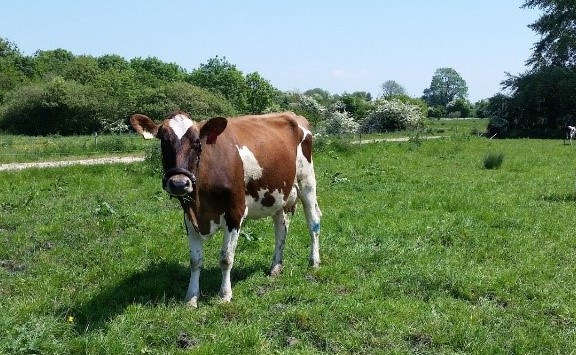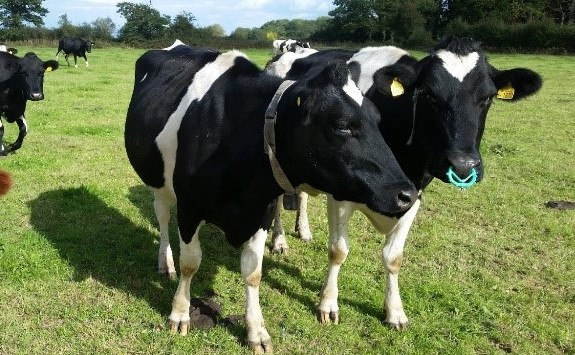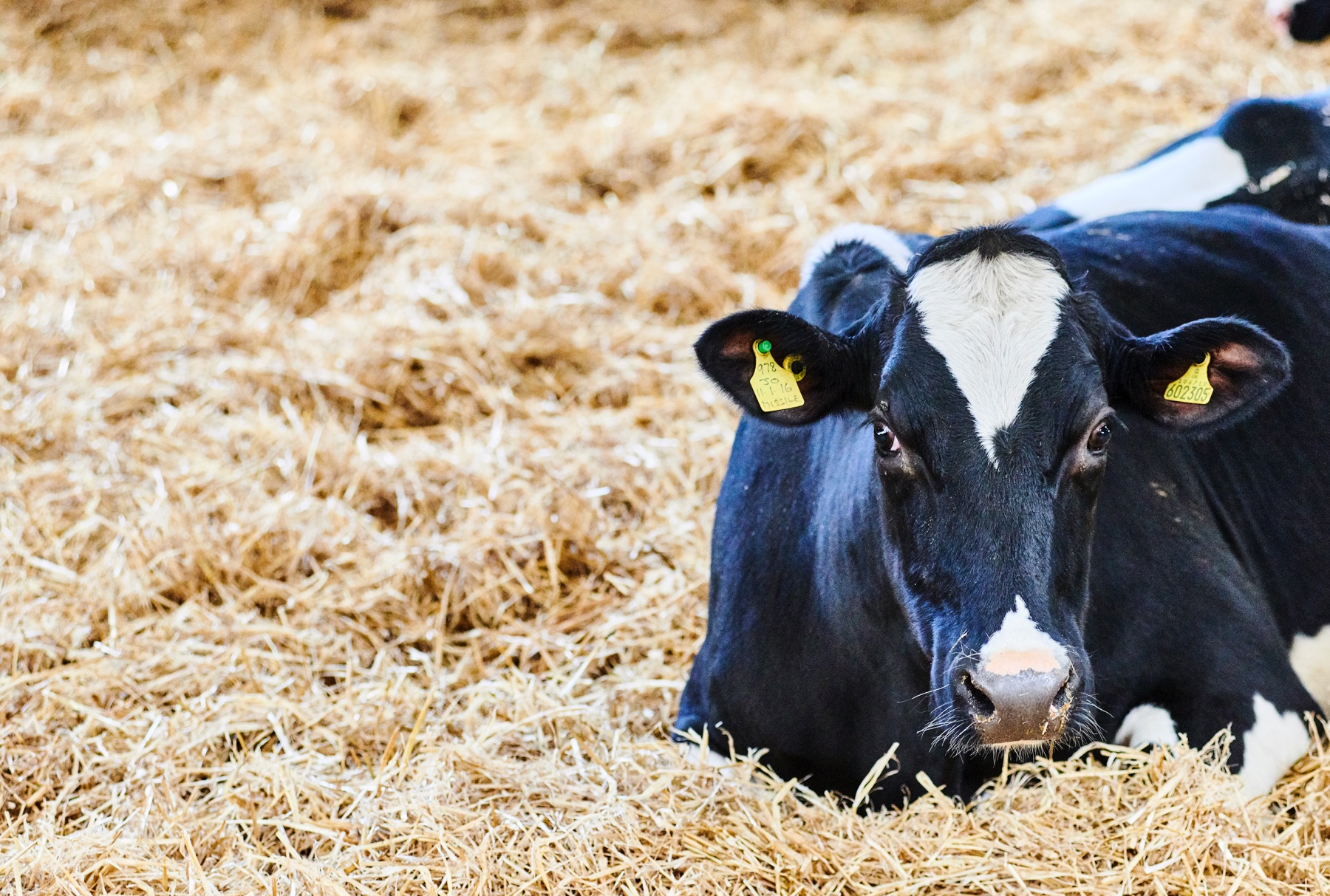Sustainable Animal Production
Understanding the impacts, benefits and trade-offs of Mob Grazing
Topic: Efficient grazing management involves frequent moves and assessing grass growth and cover. But how can this management be optimised?
- Funder: DEFRA
- Project collaborators: Mark Whittingham, Hannah Davis, James Standen, Gareth Hancock
- External partners: ADAS, AFBI, LLM Vets, Bangor University
Summary:
This research project aims to improve understanding of mob grazing; its impacts, benefits and trade-offs. Well planned and managed grazing may have the potential to offer productivity and environmental benefits, but relatively little research has been done on the practice in the UK. This study will analyse any impacts of changing grazing management through replicated field trials, to build understanding on how to appropriately exploit any potential productivity or environmental gains.
Links to modules: ACE2076, ACE3088, ACE8115
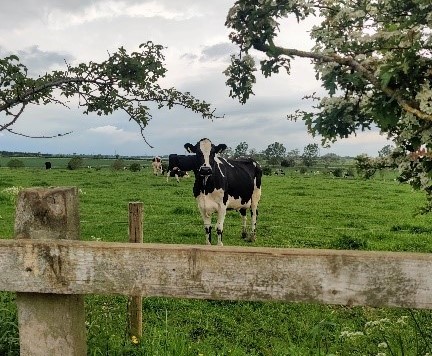
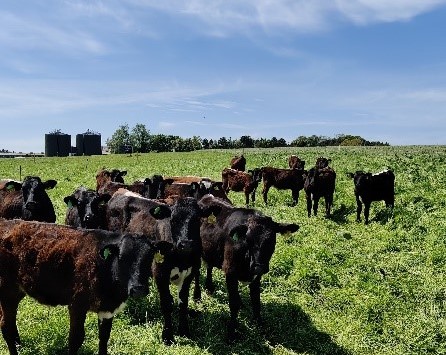
Mixed Sward Management
Topic: Diversifying grazing sward away from typical perennial rye-grass is essential for improved efficiency and environmental sustainability. But how well do alternative species establish and survive?
- Funder: Germinal
- Project collaborators: Hannah Davis, James Standen, Gareth Hancock
Summary:
This project aims to explore how different sward mixes establish and the survival of the individual species. Using a randomised, replicated design, 5 mixes are being explored. They range from perennial rye-grass and white clover mix, to mixes including more drought tolerant species such as chicory and plantain and herbs such as sheep’s parsley and yarrow.
So far, the mixes have been established and had one cut for silage. Next year, we will explore how grazing affects survival of the species.
Links to modules: ACE2076, ACE3088
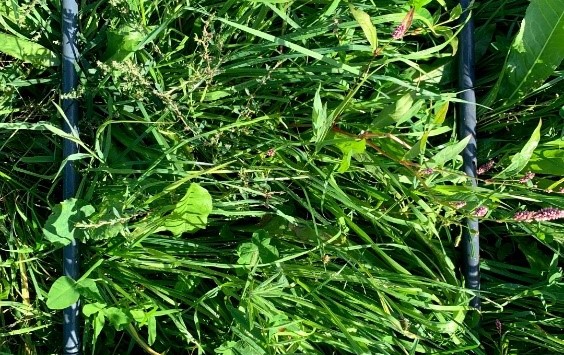
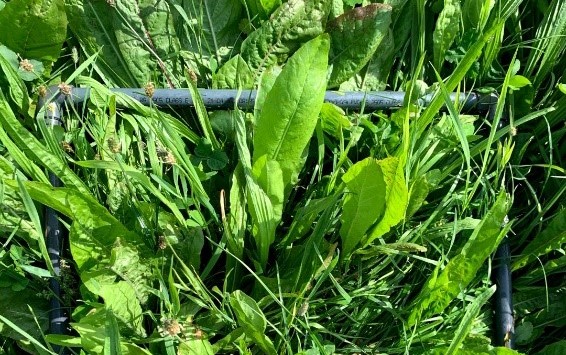
SusCatt - Sustainable Cattle
Topic: Increasing productivity, resource efficiency and product quality to increase the economic competitiveness of forage and grazing based cattle production systems
- Funder: DEFRA as part of the ERA-NET Cofund SusAn
- Project collaborators: Håvard Steinshamn, Gillian Butler, Hannah Davis
- External partners:
- Norway: The Norwegian Institute of Bioeconomy Research (NIBIO)
- Germany: Institute of Crop Science and Plant Breeding, Kiel University
- Italy: University of Padova
- Poland: Istytut Genetyki i Hodowli Zwierzat PAN Jastrzebiec
- Sweden: RISE Research Institutes of Sweden and Swedish University of Agricultural Sciences
Summary:
The sustainability of the intensive European cattle milk and meat production is questioned due to environmental and animal welfare trade-offs and growing reliance on edible food and imported feed. The SusCatt project aimed to evaluate the productivity, resource-use efficiency and consumers’ acceptability of a transition to high forage and pasture diets for European cattle. The project focused on dairy, integrated dairy and beef and specialized beef production systems. The main hypotheses were that a transition to high forage and non-food diets will enhance a) product quality, b) animal health and welfare, c) resource-use efficiency and d) consumer acceptability, by matching appropriate diets, breeds and production systems.
